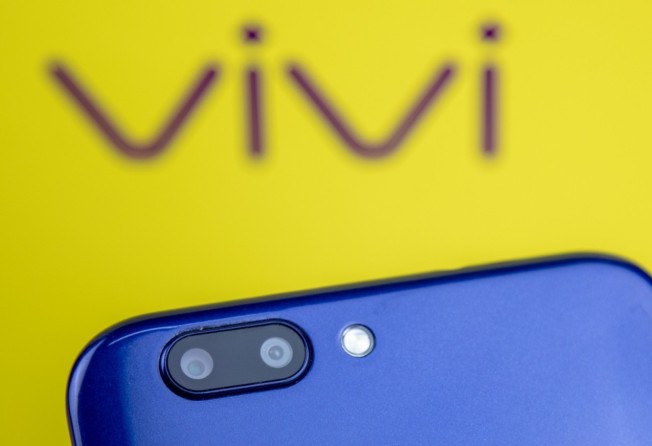“Vivi” phone disappears on Pinduoduo platform after review criticises product description as misleading
Vivi phones are produced by Shenzhen Youpintong Electronic Technology, which has sold 300,000 units of the model, according to the official website

Social commerce platform Pinduoduo, whose recent IPO made its chief executive Colin Huang Zheng one of China’s richest people, has blocked key word searches for “Vivi” after a low-priced copycat smartphone bearing that name was criticised by an online media publication for having misleading product information.
The Vivi phone, which looks and sounds similar to the popular Vivo X brand of smartphones, did not offer a number of features offered in its product description, including a curved retina screen and dual camera, according to the product review by TMTPost, a China online technology publication.
One camera on the Vivi phone was not usable and just there as decoration. Its overall operating speed was also found to be very slow, as it uses an older version of the Android operating system, according to the review.
“According to relevant rules, the search results of ‘Vivi’ will not be displayed,” appeared on the screen after searching for the Vivi phone on the Pinduoduo platform on Wednesday.
Vivi phones are produced by Shenzhen Youpintong Electronic Technology, which has sold 300,000 units of the model, according to the official website. The Shenzhen company owns a branch office in Hong Kong and an office in the Middle East with its products sold in more than 60 countries and regions, according to the website.
Pinduoduo did not immediately respond to a request for comment. There was no immediate response to an emailed request for comment from the makers of Vivi.
Pinduoduo has come under growing scrutiny since the company’s US$1.6 billion US initial public offering last month. The company operates as an e-commerce platform that lets third-party vendors sell items to consumers, pioneering a social group-buying model that offers buyers generous discounts if they share the product listing with a friend who also purchases the item. However, the State Administration for Market Regulation last week called for an investigation into the sale of counterfeit products and items that infringe copyright on the Pinduoduo platform, currently the third-largest in China following those of Alibaba Group Holding and JD.com.
Youpintong Electronic says on its website that it has cooperated with well-known e-commerce platforms, including those of Alibaba, to sell its products. However, searches on Wednesday for Vivi phones on Alibaba’s Taobao Marketplace and Tmall sites as well as JD.com, failed to show any relevant results.
Vivo, China’s third-largest smartphone brand, shipped 19.9 million handset units in the second quarter this year, up 24.3 per cent year-on-year from 16 million last year, according to a report from research firm IDC on Tuesday. Prices for Vivo’s X20 smartphone start from 2,598 yuan (US$380) in China, while the Vivi was priced at 398 yuan on Pinduoduo, according to the review.
Shenzhen-based Vivo, which has 19 per cent market share in China, declined to comment on the issue of Vivi phones being sold on Pinduoduo’s platform.
Several well-known brands have voiced concerns about knock-offs being sold on Pinduoduo and indicated their intention to protect their legal rights.
Television manufacturer Shenzhen Skyworth Digital Technology has asked Pinduoduo to take down all fake product listings from its site, and said it reserves the right to sue the company and the merchants involved for infringement of its intellectual property after it found eight television brands sold on Pinduoduo included the word “Skyworth” in their Chinese names.
Alibaba is the parent company of the South China Morning Post.
Additional reporting by Zen Soo